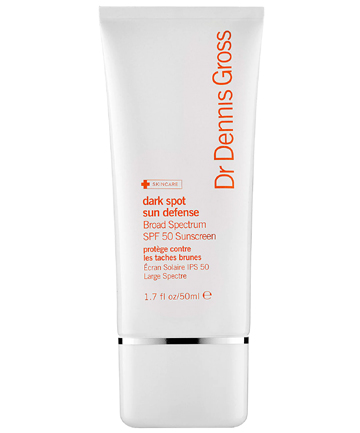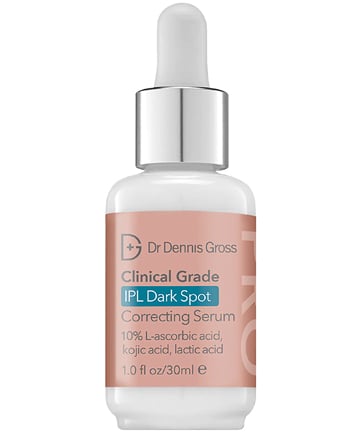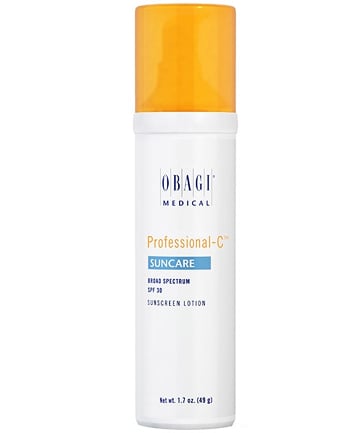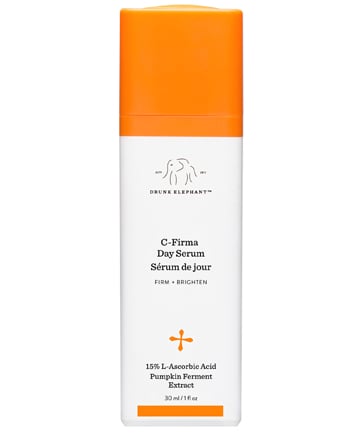While many think strong in-office treatments are needed to ward off discoloration, most people can actually start off by opting for over-the-counter remedies like the Dr. Dennis Gross Clinical Grade IPL Dark Spot Correcting Serum, $92. "It's formulated with pure l-ascorbic acid, alpha hydroxy acids and kojic acid to remove over-pigmented surface cells, clear and illuminate skin tone and fight against environmental aggressors," explains Dr. Gross. "It has been proven to work better than prescription grade hydroquinone without any of the side effects that hydroquinone is known to have (i.e. redness, sensitivity, irritation)."
Dr. Gross says it's now his go-to, over prescription for hydroquinone. "Hydroquinone can be really irritating and can actually backfire if you're not careful by causing post inflammatory hyperpigmentation — meaning you get worse dark spots than before using it." He recommends using the IPL serum for eight weeks and then going to see your dermatologist. "Even if you go in for a professional treatment, using the serum in conjunction will help prevent new spots from forming. Professional treatments are only corrective, not preventative."
Speaking of prevention, depending on the type of hyperpigmentation you're dealing with, there may not be all that much that you can actually do. "Unfortunately there's not much you can really do about most hormonal changes that cause melasma, however, you can wear SPF daily and use other protective gear like hats to prevent the darkening of melasma spots. Incorporate a vitamin C serum into your regimen to help protect skin against damaging free radicals," says Dr. Gross.
As for sun and age spots the number one tip: wear SPF and make sure you're using it on anywhere that is exposed to the sun — not just your face. "I recommend a physical SPF of at least 30 SPF — it works as a physical blocker and prevents UVA/UVB damage which is what causes sun/age spots to appear."
If you're doing everything mentioned and still are having trouble fighting stubborn discoloration an in-office procedure to consider is IPL. "It has been newly upgraded with advanced features and works better than ever because it goes deep, requiring fewer treatments," says Dr. Gross. "It works by targeting the pigmented areas with light, breaking them up." Most patients need a series of two or three treatments and, depending on the selected course of treatment, downtime can vary from two to five days which can be customized to fit your schedule. That said, Dr. Gross underlines that not all skin types are good candidates for this laser since people with darker skin tones may darken their spots as a result of the laser treatment.
See some of the best products for hyperpigmentation ahead!
Image via Imaxtree
This cult favorite is loaded with l-ascorbic acid, vitamin C and other active ingredients to fight dark spots and give an overall brighter complexion.









